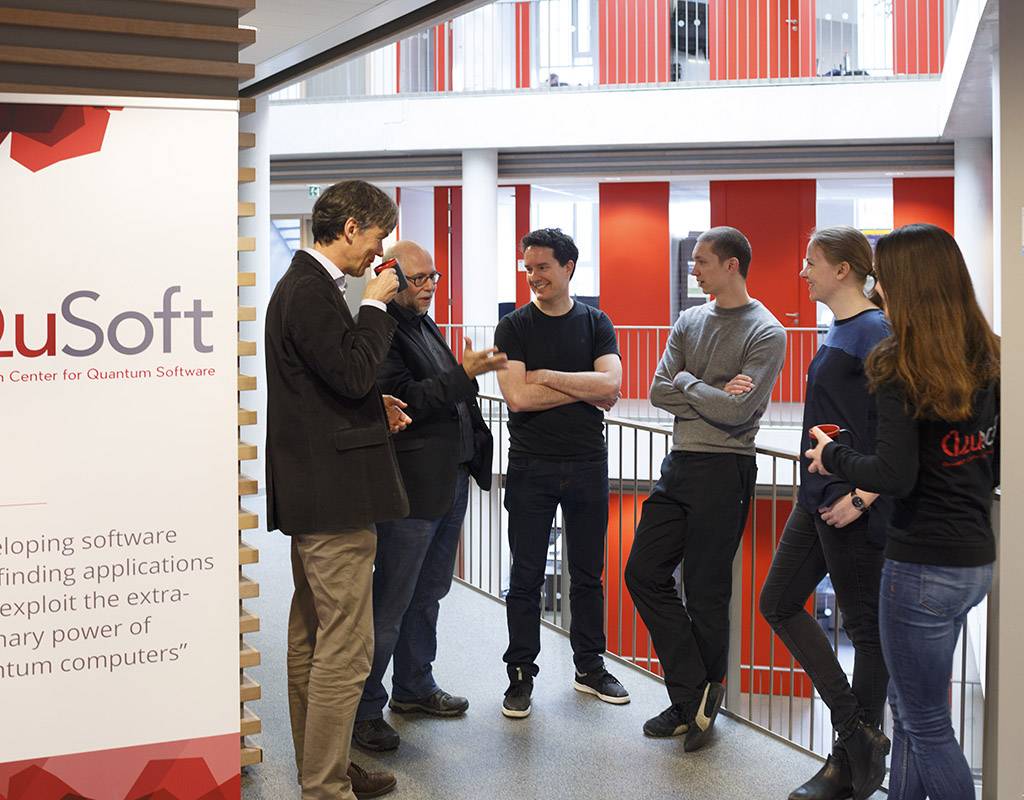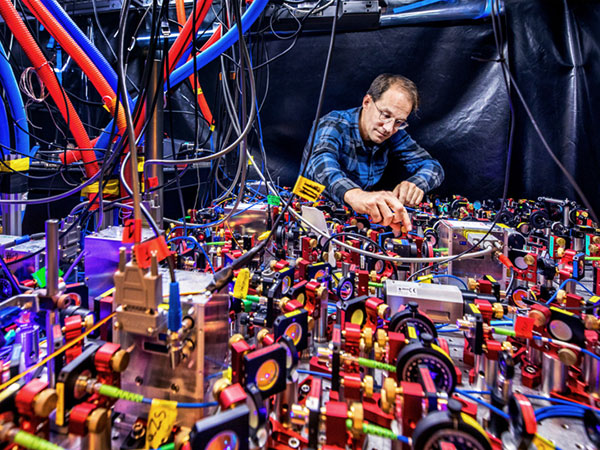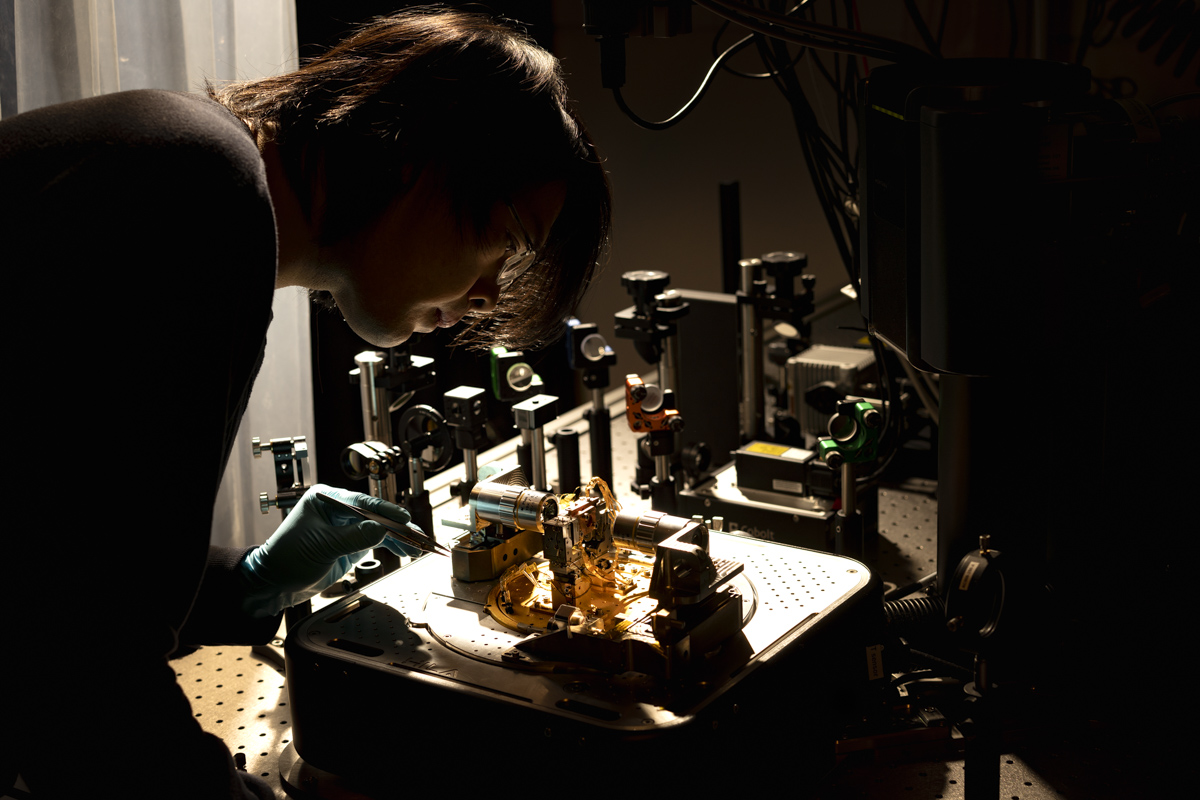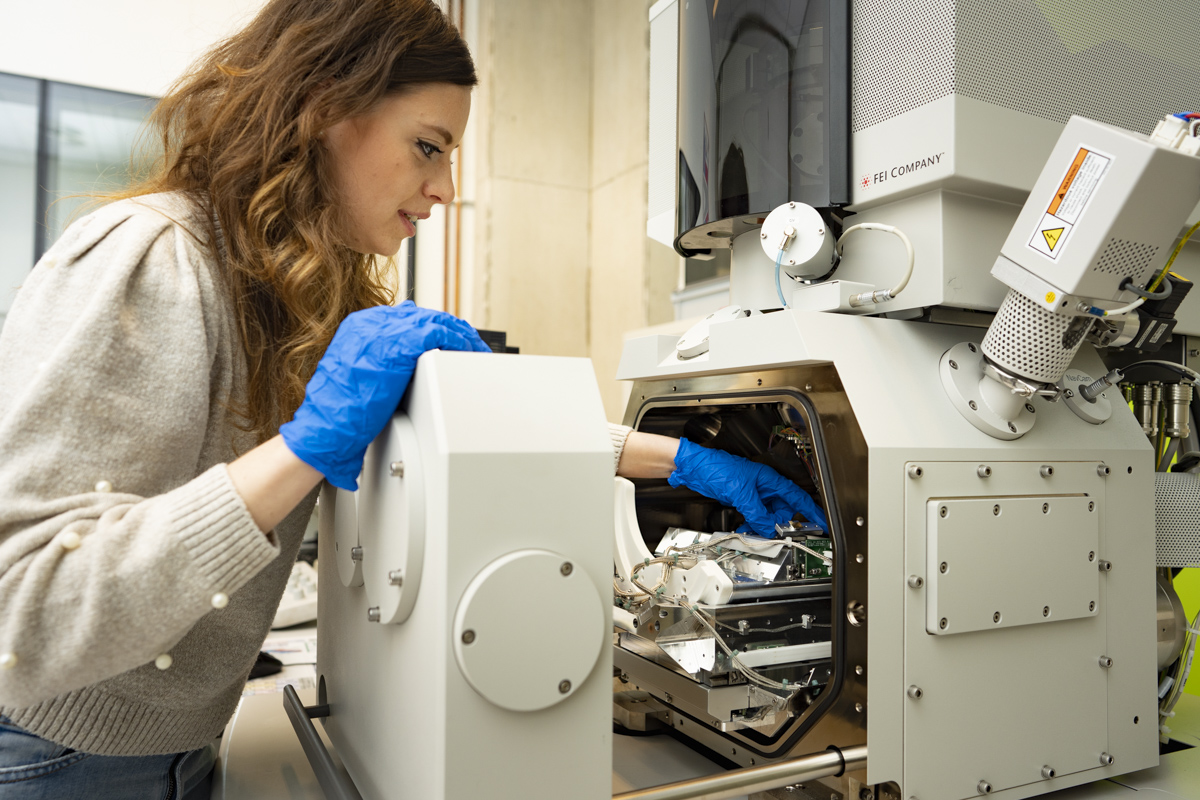
As a network organisation, Quantum.Amsterdam has a strong backbone in knowledge partners such as the University of Amsterdam, Centrum Wiskunde & Informatica (CWI), Vrije Universiteit Amsterdam (VU), and the Amsterdam University of Applied Sciences. Its research base includes QuSoft, the research center for quantum software, and quantum labs at the UvA, which focus on hardware for quantum simulation, atomic clocks and quantum sensing applications.
The new funding, awarded by the National Growth Fund, will benefit many of the activities undertaken by Quantum.Amsterdam, such as quantum awareness programs for companies, a Talent and Learning Centre aimed at educating the quantum workforce of the future, and a program focusing on Ethical Legal and Social Aspects (ELSA) of quantum technologies. Quantum.Amsterdam is here to connect its knowlegde partners to companies who are interested in a future in quantum technology.
Knowledge Partners
Quantum.Amsterdam Knowledge Partners
The hub possesses excellent knowledge on quantum software, technology and applications. Its knowledge partners are internationally renowned experts who collaborate with colleagues all over the world, including at the European Quantum Technologies Flagship. The hub has joined forces with committed leading tech players to create a vibrant gateway for researching and developing quantum software and hardware applications.
QuSoft is the Dutch research center for quantum software with an excellent track record in quantum computing and quantum information. Its mission is to explore and develop uses of quantum computers and other quantum technologies at large, for the benefit of society.
The researchers at QuSoft develop software and applications that exploit the extraordinary power of quantum computers based on their quantum mechanical properties such as superposition, interference and entanglement. That requires fundamentally different techniques and approaches from those used to develop conventional software.
The work of the center is organized into four research groups: 1) few-qubit applications, 2) quantum testing and debugging, 3) quantum cryptography and 4) quantum architectures.


Researchers at the University of Amsterdam are working on quantum devices, especially quantum sensors and computers based on ultracold Sr atoms. An example are optical clocks, which are so precise that they would only lose one second over the lifetime of the universe! A team led by professor Florian Schreck is developing a new type of clock, in which atoms are teased into a quantum state in which they actively emit light at an extremely precise frequency, which is what makes the clock tick. Such optical clocks promise to enable faster internet, improve robotic cars and facilitate subterranean exploration. Another example are quantum computers using arrays of individual Sr atoms linked through pulses of light. If this teaser on our experimental activities intrigues you, please click the read more button.
Researchers at the NWO institute AMOLF are studying materials and devices for quantum sensing & metrology, communication, and simulation. In nano-optomechanical resonators, they challenge the quantum limits to displacement detection to create ultraprecise mechanical sensors of forces, fields, and accelerations. They explore new nanophotonic strategies and materials for efficient single photon sources, and develop high-fidelity approaches to photonic transducers and on-chip routing elements for quantum communication. Moreover, they study nanophotonic networks including strongly interacting nanomaterials to build quantum simulators that use photons to solve specific computation and optimization problems with unmatched speed. Finally, they develop advanced electron microscopy methods that exploit quantum phenomena, and allow probing materials with unprecedented capabilities.


AMOLF NanoLab Amsterdam is a facility for nanofabrication and nanocharacterization. It is part of NanoLabNL, the Dutch national facility for nanotechnology research that provides a full-service and open-access infrastructure for R&D in nanotechnology. It offers a wide range of state-of-art techniques suitable for quantum devices, including lithography, deposition, etching, and microscopy. Specific expertises include nanophotonic and nanomechanical devices, nanomaterials and advanced characterization down to the atomic scale. The AMOLF NanoLab acts as an open facility, welcoming both academic and industrial users to use its facilities and expertise for quantum nanotechnology development.
The Institute for Information Law (IViR) at the University of Amsterdam, officially established in 1989, is one of the largest research centers in the field of information law in the world. The Institute employs over 25 researchers who are active in an entire spectrum of information society related legal areas: intellectual property law, patents, telecommunications and broadcasting regulation, media law, Internet regulation, advertising law, domain names, freedom of expression, privacy, digital consumer issues, commercial speech, et cetera.
The Institute engages in cutting-edge research into fundamental and topical aspects of information law, and provides a forum for critical debate about the social, cultural and political aspects of regulating information markets.
The Institute’s international orientation is reflected in its international staff as well as various international co-operations and partnerships.
A team led by professor Joris van Hoboken does research on the intersection of fundamental rights protection (data privacy, freedom of expression, non-discrimination) and the governance of platforms and internet-based services. Prof. Hoboken is specialist in European data protection, algorithmic governance and the regulation of internet intermediaries.
The Amsterdam University of Applied Sciences (AUAS), national research institute for mathematics and computer science (CWI) and Capgemini have launched an applied quantum computing research group under the direction of special lecturer Marten Teitsma. AUAS’s task in the applied quantum computing research group will be to investigate whether quantum computing can be used in various practical applications, and if so how. The research will focus on potential implementations of theoretical algorithms and protocols developed by CWI and QuSoft, or other knowledge partners.
In order to translate theory into practice, the group will work with business cases from the industry network (e.g. Capgemini). One example of this research is using quantum approaches to enhance fraud detection at banks, combining techniques from artificial intelligence with quantum computing algorithms. An example of a practical application could be the discovery of new drugs, accelerated by new quantum simulation algorithms.